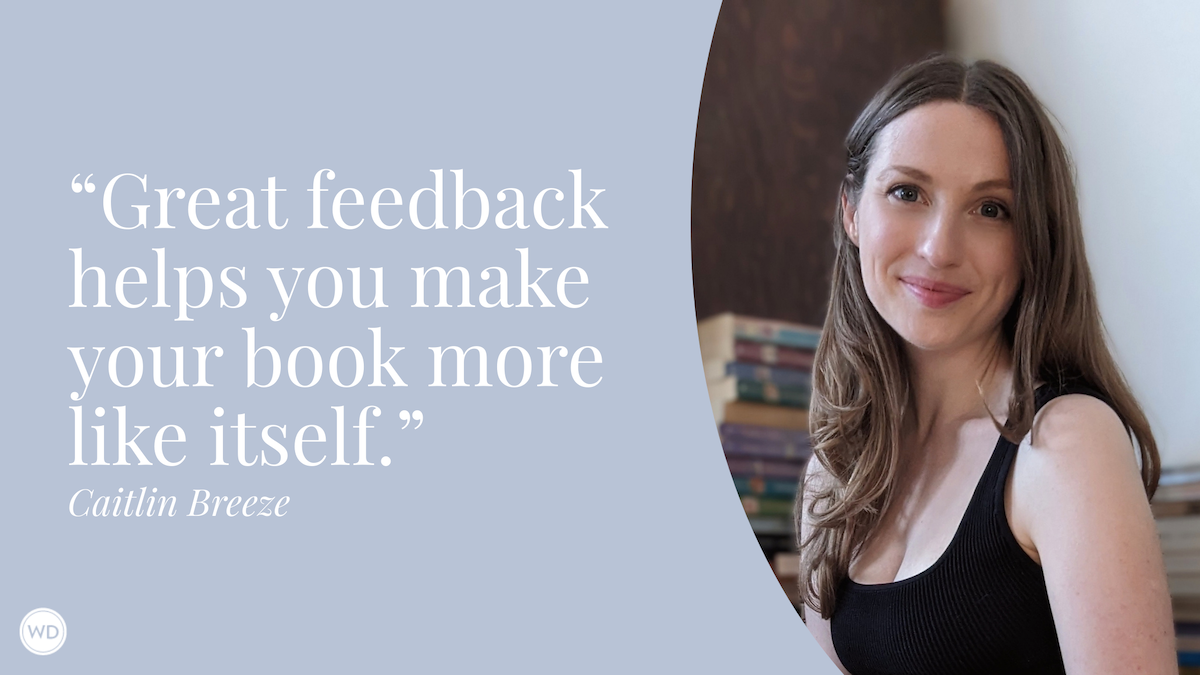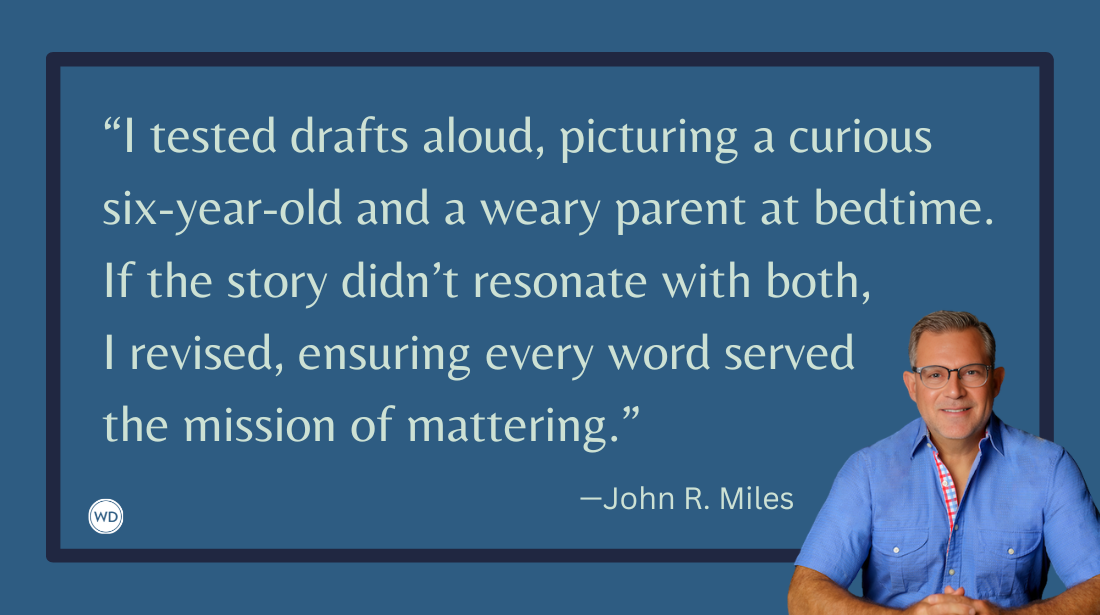5 Pieces of Advice From Writers That I Come Back to Again and Again
Award-winning author Tríona Walsh share her top five pieces of advice from writers that she returns to again and again.
When I was a young writer I believed that talent was like pie, there was only so much of it to go round. Thankfully my eyes were opened and I learned that writing was a craft. Studying it meant I could bake bigger, tastier pies!
In particular, I found learning from other writers invaluable. From teachers, from books on writing, and from writers groups, there’s always been something which has improved the words that flowed from my pen. Below are my five favorite pieces of writing advice.
1) Writing With the Senses
“We experience the world through our senses, so we must write using the senses.” —My creative writing teacher
In a workshop I once attended the teacher informed us that as “we experience the world through our senses, so we must write using the senses.” This really struck home with me, and I now always make sure to consider the five senses when I write. What does the food taste like? What is the scent in the air?
In my mystery novel, The Party, my characters are stuck in an old mansion, deep in the middle of the forest. Ample opportunity to explore writing with the senses. For example, during a dramatic moment—“She crawled towards Claire’s pained mumbles, feeling the forest floor squelch and ooze through her fingers.”—you can really feel the wet rotting mulch of the forest floor underneath her.
This makes writing richer and draws the reader into the heart of our story. Writer E.L. Doctorow agreed with this approach: “Good writing is supposed to evoke sensation in the reader—not the fact that it is raining, but the feeling of being rained upon.”
Check out Tríona Walsh's The Party here:
(WD uses affiliate links.)
2) How to Plot Successfully
“'The king died and then the queen died’ is a story. ‘The king died, and then the queen died of grief’ is a plot.” —E.M. Forster
While it’s up for debate whether there really is a difference between story and plot, one tip can definitely be learned from E.M. Forster ideas. Plot, for him, was about the cause and effect of events. The queen didn’t just die, she died of grief. Story is driven by how one event impacts the next. It is not just event, event, event. I ask myself, with each action from my characters, how does that impact their next? What dominoes have started to fall?
Keeping this in mind as you plot—whether as a plotter or as a discovery writer—will give your story pace and a forward propulsion. No matter how interesting individual events might be, without a cause and effect your story risks being one long info dump. You risk eventually boring the reader.
If we stick with Forster’s example, it could play out like this… The king died—causing such grief that the queen died. What then? Her death causes a power vacuum and the realm’s subjects so distracted and bereft from her death are vulnerable to a sneak attack from a neighboring army. What is the effect of this? This threat shakes one brave young man from his grief and he rises up, rallies the demoralized people, and they fight back… etc. You can see how the plot moves forward, primed to bring the reader with it.
3) Clues Should Be Dramatized (or ‘Be Eaten by the Monster’ as I like to think of this advice) —K M Weiland
This nugget comes from writer K M Weiland. It is all about keeping our writing at its most active—avoiding the no-no of telling, not showing. Weiland posits a situation where a legendary monster is being hunted. She asks which is the best way to find out the monster exists? Is it reading about it in a book? That’s just about okay. What about hearing of it from an old-timer? That’s better. But, ideally, she argues we should find out the legendary monster is real by nearly being eaten by it!
The first time I read this bit of advice, I loved it. My head filled with the image of a ferocious creature, eyes blazing, jaws wide with fierce slavering teeth bearing down on me, determined to eat me up! So, I always ask myself, how can my characters find out information in the most active way possible? Let’s not hear a rumor on the grapevine, instead have the character spy the illicit tryst from a hiding place. The hero shouldn’t rush to the hospital, alerted to his love’s accident by a phone call, instead he should come across the aftermath of the accident and see his beloved critically injured.
But this doesn’t just apply to big moments. Just think of Pride and Prejudice, when Elizabeth overhears Mr Darcy say “She is tolerable; but not handsome enough to tempt me; and I am in no humour at present to give consequence to young ladies who are slighted by other men.” Elizabeth could have heard of his contempt from a friend, or read it in a letter. But by overhearing it herself, she is an active participant in the story and it is all the more powerful for it.
4) Getting Rid of Filter Words
“Cut.” —My writer friend Joe.
Like a lot of writers I enjoy belonging to a writers’ group. You can learn so much there. In one such group is my writer friend, Joe. With swift flicks of his red pen, he always hands back my work in much better shape than I gave it to him. For the longest time I couldn’t work how he did that. What was he doing? Joe’s particular talent, I discovered, was to identify all the fat and get rid of it. And most insidious among the trimmings were filter words.
Filter words place a remove between the reader and the action of the story. For example, ‘He heard the car drive by.’ Heard is the offender here. The information is being filtered through our character, we the reader aren’t witnessing the action first hand. Instead, even a simple tweak to ‘The car drove by’ is much better, we are in the moment, hearing the car drive by ourselves. Every filter word puts the reader in the audience and not in the middle of the action. And just like with being eaten by the monster and using the senses, this technique draws the reader in as an active participant in your writing.
5) Discipline
“You will be published if you possess three qualities—talent, passion, and discipline.
"You will probably be published if you possess… either talent and discipline (or) passion and discipline. You will likely be published if you possess neither talent nor passion, but still have discipline… But if all you possess is talent or passion, (or) talent AND passion—you will NOT be published. The likelihood is you will never be published.” —Elizabeth George (in Write Away)
And finally, the most important bit of writing advice that I return to is not actually writing advice as such. I’ve come back to this quote from Elizabeth George again and again over the years. I’ll never forget reading it in her book on writing, Write Away, years ago as a new writer. This line in particular struck me “You will LIKELY be published if you possess neither talent nor passion, but still have discipline.”
I scoffed. Surely she was talking nonsense, talent will always win out, won’t it? (We’re back to the pie again.) Her somewhat harsh words stayed with me over the years. As I’ve stuck with this writing game—getting up when I’ve been knocked down, creating my own luck when the spontaneous kind was scarce, or simply turning up to write over and over when I’d rather do something easier—has taught me she was right. Discipline, whether in the form of getting words on the page, or just never giving up, is fundamental.
Of course this isn’t an absolute. There are talented, passionate and disciplined writers who who don’t make it, just like there are a handful who wake up in the morning and have success dumped in their lap. But, by being disciplined with both the little things and the big, you’re stacking the odds in your favor. The first four pieces of writing advice I’ve talked about here are worthless if you ignore this fifth.
I’ll leave you with a second quote on this theme from writer Colum McCann, who just as plainly as Elizabeth George, tells you it’s all about discipline.
“A writer is not someone who thinks obsessively about writing, or talks about it, or plans it, or dissects it, or even reveres it: a writer is the one who puts his arse in the chair when the last thing he wants to do is have his arse in the chair.” —Colum McCann
So, get in the chair, find the advice that helps you, and write!
Tríona Walsh loves reading and writing crime novels but is fairly law abiding in real life. A twice winner of the Irish Writers Centre Novel Fair competition she lives in Dublin with her four kids, three cats, and one husband.








